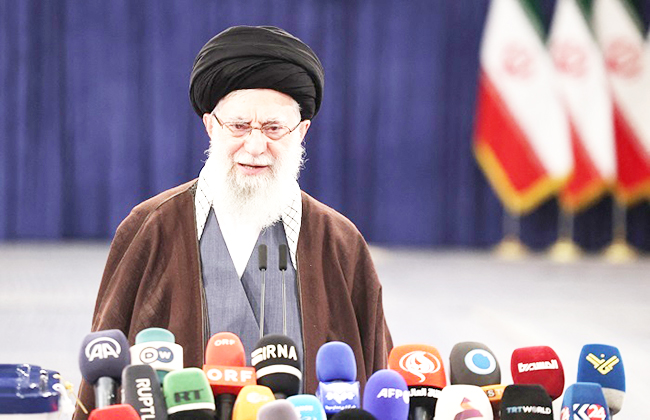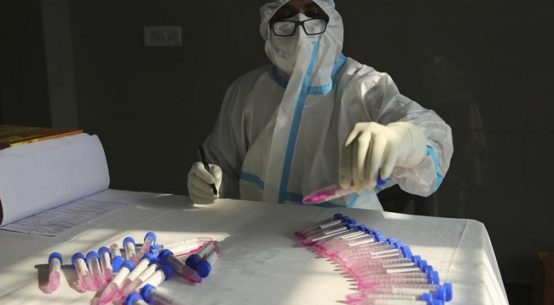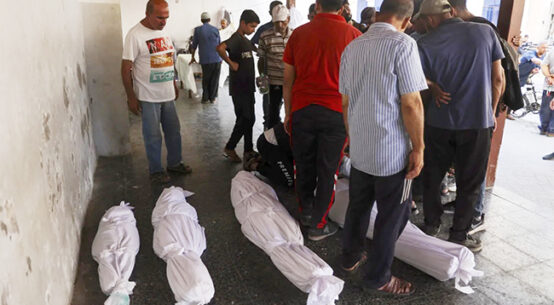
Iranian Supreme Leader Ali Khamenei has ordered a direct strike on Israel for the killing of Hamas chief Ismail Haniyeh, according to a report Wednesday, as he and other top Iranian officials vowed a response to the Palestinian terror chief’s assassination in Tehran.
Citing three unnamed Iranian officials briefed on the matter, including two Revolutionary Guard members, the New York Times reported that Khamenei gave the directive at an emergency meeting of the Supreme National Security Council held shortly after Haniyeh’s killing was announced Wednesday morning.
As part of the order, the officials said Khamenei told commanders of the Islamic Revolutionary Guard Corps and Iranian Army to ready both attack and defense plans “in the event that the war expands and Israel or the United States strike Iran,” reports Times of Israel.
Israel has not commented on the incident, which came amid its war with the Hamas terror group in the Gaza Strip and hours after an IDF strike in Beirut killed the top military commander of fellow Iran-backed Hezbollah. With Israel on high alert for a possible response, Prime Minister Benjamin Netanyahu warned in an address to the nation on Wednesday evening that “challenging days are ahead,” but vowed the country was “ready for every scenario” and “will exact a very heavy price for any aggression against us.” He did not mention Haniyeh.
Khamenei had hosted Haniyeh, who was visiting Tehran for the swearing-in ceremony of new Iranian President Masoud Pezeshkian, for a meeting on Tuesday hours before he was killed.
“With this action, the criminal and terrorist Zionist regime prepared the ground for harsh punishment for itself, and we consider it our duty to seek revenge for his blood as he was martyred in the territory of the Islamic Republic of Iran,” Khamenei said in a statement on the assassination carried by state media.
The Iranian officials quoted by the New York Times said that among the options being weighed are a combined drone and missile assault — similar to the direct attack on Israel several months ago — on military targets around Tel Aviv and Haifa, asserting Iran would go out of its way not to strike civilian sites.
They also said military commanders are considering launching the attack in coordination with Iranian proxies around the region “for maximum effect,” naming Yemen, Syria and Iraq among the countries where Iran’s allies operate.
Iran has in the past acted on threats to retaliate against Israel, generally through its regional proxies. However, in April, for the first time, it responded directly to the killing of a senior army general in an alleged Israeli strike in Beirut. On that occasion, Iran launched hundreds of missiles and drones at Israel, nearly all of which Israel was able to intercept with the help of US coordination with other forces in the region, including Britain, France, and some Arab states. Very minor damage was caused to an airbase and a young Bedouin girl was seriously injured by falling shrapnel.
Noting the joint international response to that attack, US Defense Secretary Lloyd Austin said Wednesday the US “certainly will help defend Israel” if regional conflict escalates following the deaths of Haniyeh and Fuad Shukr, the Hezbollah commander.
“We don’t want to see any of that happen,” Austin told a press conference in the Philippines. “We’re going to work hard to make sure that we’re doing things to help take the temperature down and address issues through diplomatic gatherings.”
Austin added that he didn’t believe a wider war in the Middle East to be “inevitable.”
Later Wednesday, Austin spoke by phone with Defense Minister Yoav Gallant in a call the US and Israel said regarded Hezbollah and Lebanon. Neither the readout from the Pentagon nor from the Defense Ministry mentioned Haniyeh, as the US has said it was “not aware or involved in” the targeted assassination, and the Israeli government said it would not be commenting on the matter.
The Pentagon said, however, that the two defense officials “discussed the threats to Israel posed by a range of Iranian-backed terrorist groups,” and Austin “reaffirmed his unwavering commitment to Israel’s security and right to self-defense.”


